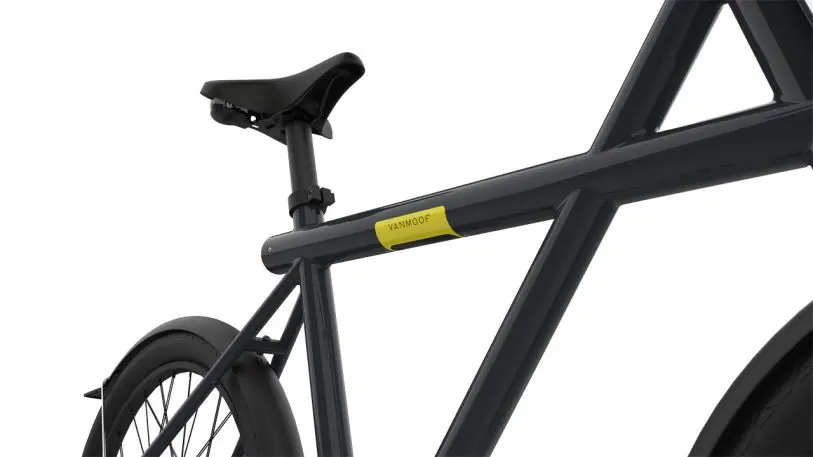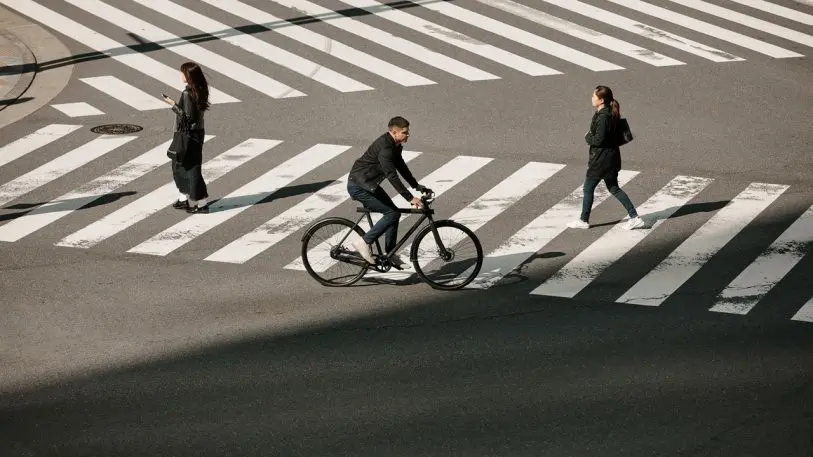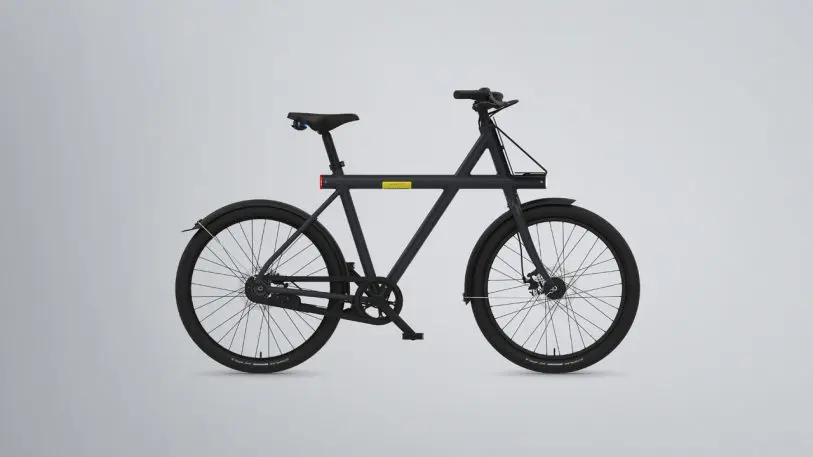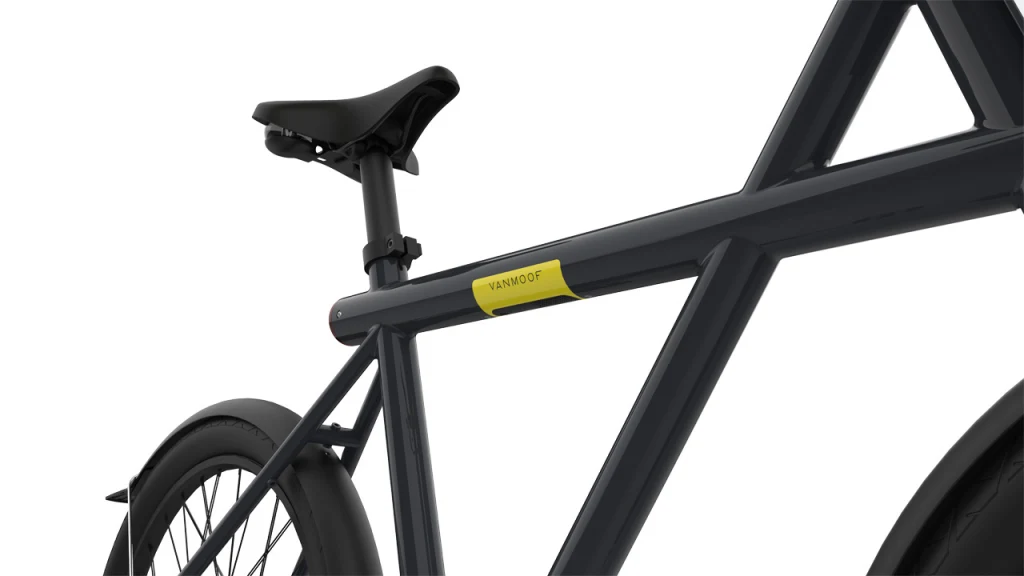Around 50% of cyclists have experienced the feeling of walking up to where they locked their bike only to find it gone–sometimes memorialized with a lonely wheel or a dangling lock. Aside from the perceived danger of cycling in a city, the risk of theft is one of the main deterrents to people buying and riding a bike. And it’s certainly a barrier to buying a nice one.
The Dutch company VanMoof, which makes high-tech urban bikes, has made it something of a goal to eradicate bike theft. Their bikes, which start at over $1,000, are smartphone-connected, equipped with tracking technology, and unlock via touch–and they also come with a “Peace of Mind” service which guarantees that if a VanMoof bike is stolen, someone from the company’s team of dedicated “bike hunters” will track it down and return it to the owner (in general, only 2.5% of all bikes that are stolen make it back to their owners, so VanMoof is aiming for a pretty radical shift). Failing that, the company will replace the bike.

But for Taco Carlier, VanMoof’s co-founder, all that still only fixed the aftermath of bike theft. He wants to prevent it before it even happens.
VanMoof’s new iteration of its Smart Bike, which launches April 24 in Europe and will arrive around a month later in the U.S., does just that. “Imagine if you were a bike thief, and you touch the Smart Bike,” Carlier says. “It will make a sound something like the growl of a wildcat.” The Smart Bike is touch-sensitive and integrated with a speaker system; when it registers that someone other than the owner is handling the bike, the sound system will activate just like a startled animal, and also send a notification to the owner through the VanMoof app. If that’s not enough to deter the thief, Carlier says, the growl will intensify and the integrated lights will start flashing. If after all that, the thief succeeds, the bike will send an alert to VanMoof’s system and the bike hunters will get on trying to recover it.

“We had to ask a sound engineer to design the sound for a bike,” Carlier says. “They’d never done that before.”
While the guard-dog technology might help VanMoof owners feel more secure in parking their bikes, Carlier still recognizes that paying thousands of dollars for a bike is not a possibility for all the users they’d like to reach.
So at the same time, VanMoof is debuting the new Smart Bike, it’s also launching a subscription service which allows cyclists to lease a VanMoof bike for a fraction of the cost of owning one. “It’s like paying for the key to the bike, rather than the bike,” Carlier says. A customer can walk into any VanMoof store and put down a one-time “key fee” of around $300, which will grant them access to a bike, and then an additional $20 or so for each month of usage. VanMoof still owns the bike and bears all responsibility for maintenance and recovery, but the cyclist can take the bike home with them and treat it, effectively, as their own personal bike. When a user wants to end their subscription, they can sell their key to the next rider, effectively recuperating the initial key fee.

As both docked and dockless bike shares proliferate across cities, VanMoof sees its subscription model as both a more personal and more flexible middle ground between bike ownership and bike sharing. If a user starts a subscription through VanMoof’s Brooklyn store, but takes a week to travel through Europe, they can hold onto their New York bike, but use their same subscription to access a bike in whatever city they visit. And the model does away with concerns over whether there will be a bike available, which often plague bikeshares.
“We’re doing this to prove that high-quality bikes with theft prevention can be accessible,” Carlier says. (Though if you carry on your VanMoof subscription service for long enough, it may just make sense to purchase a bike–$20 a month adds up.) “It’s another way to lower the barrier to getting people on high-quality bikes,” he says.
Recognize your brand's excellence by applying to this year's Brands That Matters Awards before the early-rate deadline, May 3.










